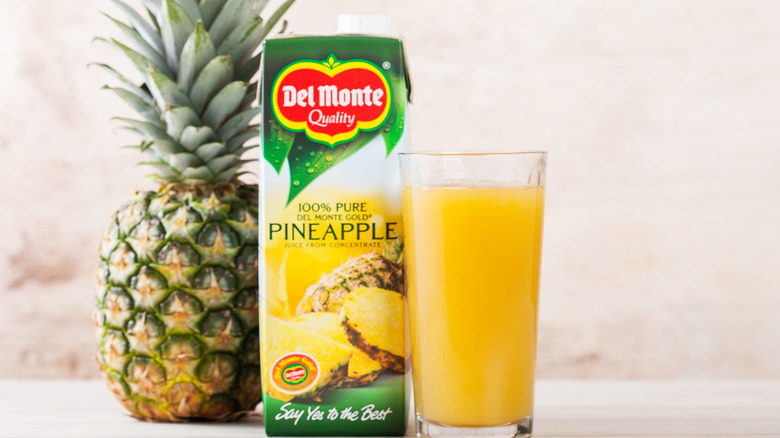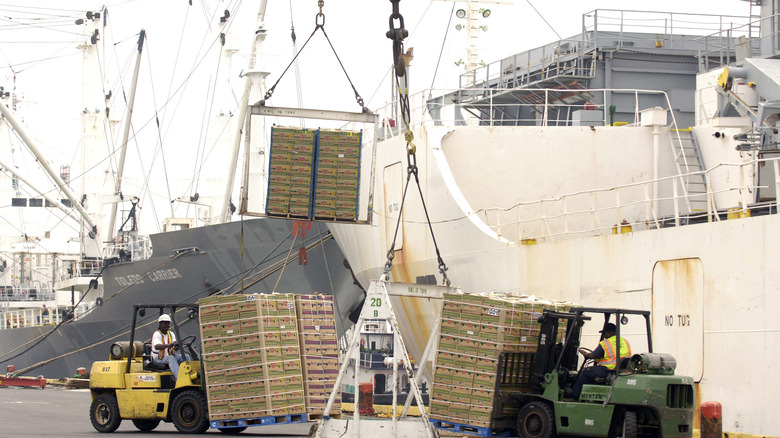Del Monte's First Carbon-Neutral Pineapples Will Hit Shelves In 2023
Known for operating some of the largest pineapple plantations, production plants, and processing facilities in the world – including the sprawling 64,000-acre plantation in Bukidnon, Philipines – the multinational Del Monte corporation produces its fair share of greenhouse gas emissions. Add its global fruit and vegetable presence dating back to 1886, and that's a lot of accountability over 135-plus years. That's why a November 2022 news release from Fresh Del Monte is making cross-continental waves, all the way from Costa Rican farmlands to European and North American markets.
The focus of Del Monte's new product release for 2023 is on the company's carbon footprint, with a bold move to embody the multi-faceted components of sustainability, greenhouse gas emissions, and carbon neutrality through carbon insetting. The Swiss-based MyClimate foundation explains carbon insetting as a process in which a company finances its own internal climate-protection projects that positively impact those within its "value chain," such as the communities, ecosystems, and landscapes in which it operates or associates.
Though the announced pineapple product, dubbed Del Monte Zero, utilizes only a sliver of the company's overall pineapple volume and will be available on a limited basis, it's nonetheless a notable effort. The product, which lands in select European and North American stores and home kitchens in the early months of 2023, is a carefully cultivated carbon-neutral pineapple that's traceable from farm to table and certified by the third-party SCS Global Services.
Reforestation and transportation
Food supply chains in the modern world get a lot of examination by consumers and climate activists, explains Food Dive, which points to others in the Consumer Packaged Goods (CPG) industry striving toward greenhouse gas compensation for their production and transportation footprints. For example, the Neutral Foods dairy company, also certified by SCS Global Services, is currently expanding its carbon-neutral milk products across America's West Coast after a $12 million round of Series A funding announced on December 10. For the historically high-footprint dairy industry, it marks significant progress.
Del Monte likewise targets transportation footprints in its vast network of fruit distribution, focusing now on the Costa Rican pineapples, according to the news release. But, the accountability begins well before the tropical fruits get loaded on trucks and ships bound from Costa Rica to Europe and North America. Base camp is the privately owned Dole forests harboring roughly 5 million trees, which the company carefully chose to implement conservation and reforestation practices intended to sequester CO2 and offset the pineapples' overall greenhouse emissions.
Successful certification for the Del Monte Zero pineapples accounted for emissions from the time the fruit left the farms and traveled over ground and sea, as well as through distribution channels and what Hans Sauter from the Dole Chief Sustainability Office calls "commercialization." He hopes that the Dole pineapple journey to a net zero carbon footprint will bring awareness and support for climate-conscious produce across its network of customers, partners, and consumers.

